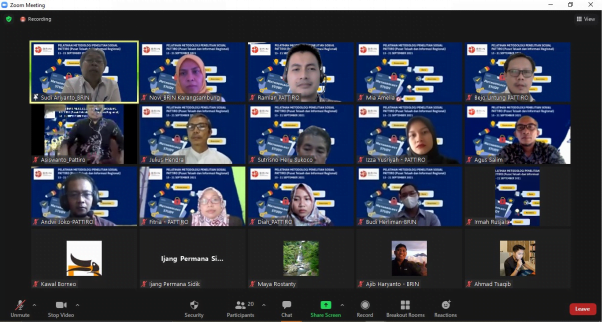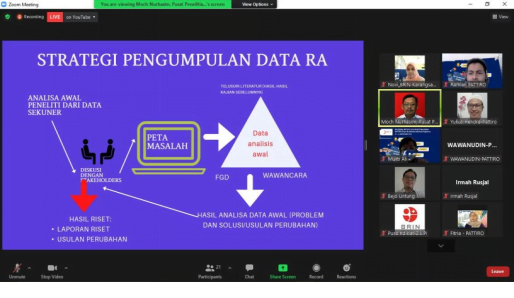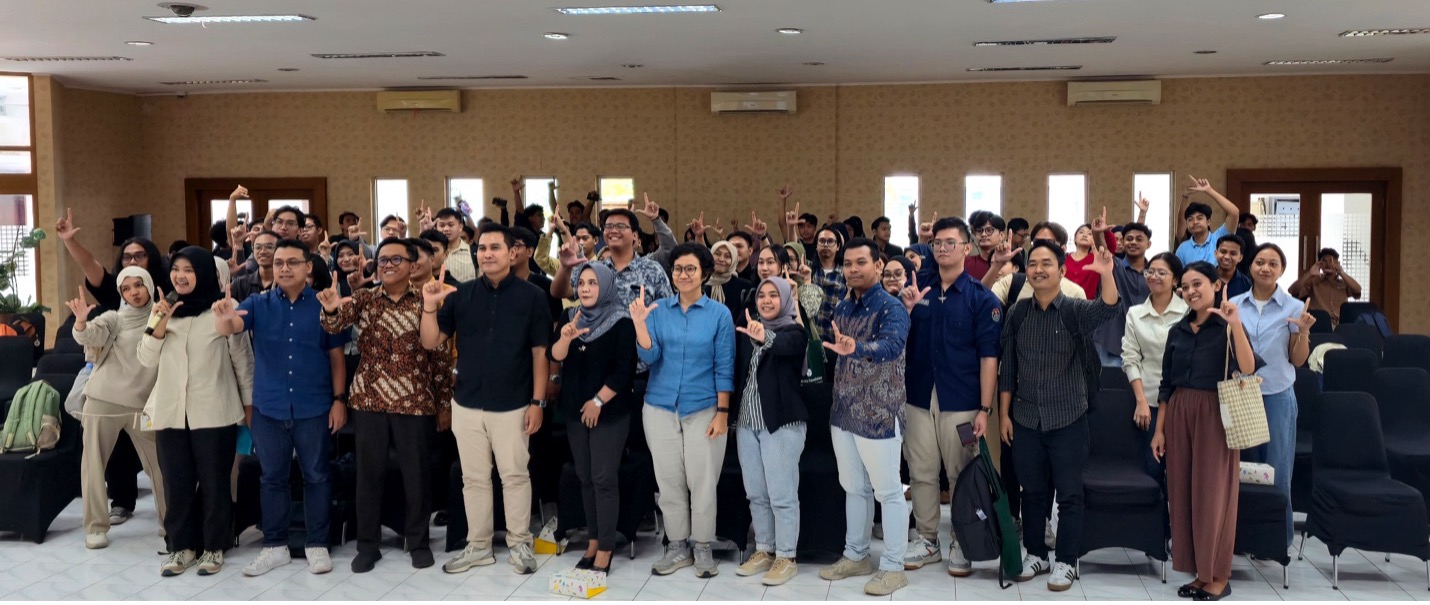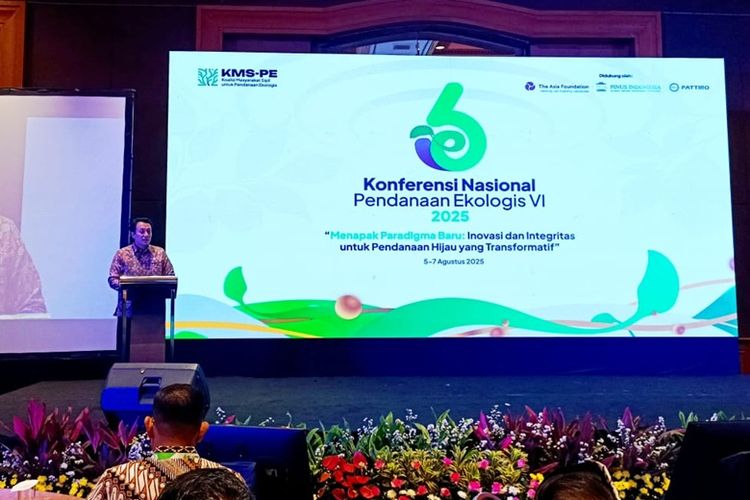
In order to support the capacity of researchers in improving the quality of research, during this period PATTIRO also carried out an activity to support the improvement of research quality, through a social research methodology training.
This training was held from September 15 to 21, 2021 in collaboration with the Center for Education and Training Development (Pusbindiklat) of the Indonesian Institute of Sciences or the National Research and Innovation Agency (BRIN). The participants involved were 14 persons (9 men and 5 women), from PATTIRO and a regional partner (Kawal Borneo Community Foundation). This training was intended to improve competence in the field of research, especially related to research methodologies, such as collecting primary and secondary data, processing and analyzing data, and reporting research results, as well as scientific principles used in research.
Through this training, participants were expected to have competence in understanding social research methodologies both qualitatively and quantitatively and to be able to develop instruments used in research activities. This training also aimed to contribute in supporting the research plan to be carried out by PATTIRO with the title “Effectiveness of the Implementation of Forest and Land Rehabilitation Programs in Reducing Greenhouse Gas Emissions”.
This training began on Wednesday, September 15, 2021 and was officially opened by Acting Director of Competency Development of BRIN, Mr. Sudi Ariyanto. In his speech, he stated the importance of increasing the competence of researchers to produce good and quality research. The entire series of activities was carried out online through LIPI’s Learning Management System (LMS).
BRIN had also prepared highly competent staff with much research experience as facilitators in this training, namely Dra. Mita Noveria, MA., Dr. I Wayan Susi Dharmawan, Sutrisno Heru Sukoco, M.Kom., Dr. Maxensius Tri Sambodo, and Moch. Nurhasim, S.IP., M.Sc.
The main subjects for the 37-hour training are as follows:
Topic in Social research methodology training
|
No |
Topic |
Presenter/Trainer |
|
1 |
Social research methodology | Dra. Mita Noveria, MA |
|
2 |
Developing research design | Dr. I Wayan Susi Dharmawan |
|
3 |
Research and management of research information | Sutrisno H. Sukoco, M,Kom |
|
4 |
Methods of analysis and interpretation of qualitative and quantitative data | Dr. Maxensius T. Sambodo |
|
5 |
Data collection methods and research instrument preparation techniques | M. Nurchasim, M.Si |
|
6 |
Research design seminar | Dr. Joko Witono
Dr. I Wayan Susi Dharmawan |
Even though the subjects were quite difficult, they were presented in a manner that made the training process interesting. Participants were given the opportunity to ask questions, confirm and even share their opinions or experiences.
In this training process, the learning method used was the classical method by way of presentation, brainstorming, discussion and presentation. The presentations delivered by the presenters were not only limited to concepts and theories, but also examples of research results related to environmental and forestry issues in accordance with PATTIRO’s research plan. This makes the learning process dynamic considering that each participant discussed with each other related to research issues and received input from presenters who are experts in their fields.
To strengthen the understanding and skills of the participants, the facilitator gave the task of compiling a research design for the participants, who were grouped into 7 groups of 2 persons each.
On the last day of the training, Tuesday, September 21, 2021, each group presented the results of their group work for 10 minutes, then the facilitators, Mr. Wayan and Mr. Joko, gave their responses.
Through this training, participants are also encouraged to be able to develop appropriate research designs according to applicable rules. Through this activity, training participants get input or feedback from the research plans to be carried out from the teachers so that they can enrich the research designs that have been prepared.
Through this training, participants were also encouraged to be able to develop appropriate research designs according to applicable rules. Through this activity, training participants received input or feedback from the research plans to be carried out from the teachers so that they could enrich the research designs that have been prepared.






